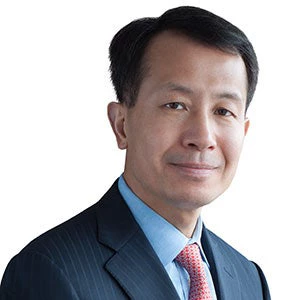For two decades, the world has made extraordinary progress in development — lifting nearly 700 million people out of extreme poverty and halving the percentage of people living on less than $1.25 a day. Now the work gets even harder: extending that progress will require us to focus on improving lives in some of the world’s most difficult corners.
Conflict and poverty are mutually reinforcing. Large numbers of the world’s poorest live in areas torn by conflict, instability, and violence — and the numbers are growing. Quite simply, we cannot end poverty and boost shared prosperity by 2030 unless we ramp up our work in these areas.
This work puts us in some of the world’s toughest and most dangerous places. There’s a good reason poverty rates in such countries have declined much more slowly than in other parts of the world — public institutions tend to be unequipped for the challenge, and the prospect of conflict or instability leaves little opportunity for private enterprise to flourish. Many projects are likely to involve untested partnerships. Controversy can arise at any time.
The key isn’t to walk away from such risks, but to find ways to achieve our goals. Those of us in the World Bank Group and elsewhere in the international community need to think big about fighting poverty, take a comprehensive approach to problem-solving, and manage the inherent risks of doing difficult things in difficult places.
Since I became IFC’s chief executive nearly two years ago, I have made it my priority to refocus the institution — to enable us to take on more projects with the potential to make a difference in the lives of the poor, and to assess all risks in a comprehensive and coordinated way. This includes environmental, social, governance, and political risks — which I believe are equal to financial or credit risks in their potential to impede our development mission.
We have the right tools for assessing many of these risks. Through our environmental, social, and governance standards, we are helping our clients continue to improve in these areas. We are helping them identify solutions that are good for the environment, good for communities, and good for business.
But safeguards alone can never be enough. Whenever we discover gaps in implementing our policies, we move promptly to close them. When our initiatives don’t live up to our expectations, we take every step to learn from our experience.
We have done exactly that with regard to our 2009 investment in Corporacion Dinant in Honduras — a country where the rate of violence is so high that it continues to make international headlines. We invested to help the company expand production at an existing factory. We followed our guidelines for investments of this type.
In such a highly charged environment, however, it was not sufficient to confine our risk assessment to the immediate scope of the project. We now know that it is imperative for us to consider and prepare for a broad variety of risks — in this case, political instability and the prospect of conflict and violence over land rights.
IFC has since taken action that goes well beyond the Dinant project. We have made our risk-assessment procedures more comprehensive, putting in place protocols to ensure that information flows to IFC’s top management for prompt intervention. Going forward, we will be much more vigilant.
We will measure our success by the development impact of our projects — not by the dollar volume of our investments. Toward that end, we are changing our institutional culture.
These steps put IFC on a strong footing to venture into areas where we are needed most. To meet the goals of ending poverty and boosting shared prosperity, we must safeguard the environmental and social interests of all people who could be affected by our projects. We cannot afford to be timid in fighting poverty — and we cannot do it alone.


Join the Conversation